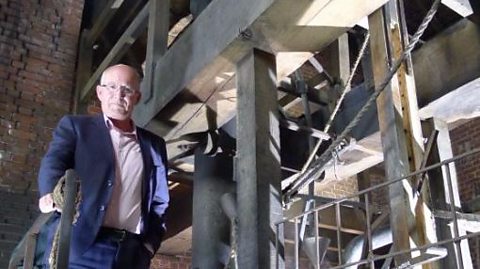Video summary
In the early 1700s Britain’s road networks were simply not up to the task of moving the goods around the country which needed to be moved.
Most of the roads were ancient, potholed and too small for modern business to be carried out.
As Britain began to industrialise, this lack of transport made it very difficult to transport raw materials like coal or cotton.
It was especially difficult for a businessman like Josiah Wedgwood, who reckoned that he sometimes lost one third of his shipments of pottery on Britain’s terrible roads.
In 1706 Parliament passed the Turnpike Act which allowed private road builders to build new roads and charge tolls for using them.
It was a first, important step towards the road transport network we know in Britain today.
This short film is from the ´óĎó´«Ă˝ series, Why the Industrial Revolution Happened Here.
Teacher Notes
Using the character of Josiah Wedgwood as a focus, but including material from the whole clip, students could identify all the information required to write a letter from Wedgwood to his local MP.
Your students should put their points across clearly, stating a case for a turnpike road to built in Stoke.
This short film is suitable for teaching history at Key Stage 3 and GCSE, Third Level and National 4 & 5, in particular units on the Victorians and the Industrial Revolution.
Josiah Wedgwood: Genius of the Industrial Revolution. video
Professor Jeremy Black explores Josiah Wedgwood's innovative ways of marketing and advertising his pottery, including opening the first ever showroom.

The brains behind the Industrial Revolution. video
Professor Jeremy Black shows how, at the birth of the Industrial Revolution, Britain's political and economic climate allowed inventive minds to blossom.

The growth of industry and factory towns in Britain. video
Professor Jeremy Black explains how the invention of factories completely changed the nature of work and made Birmingham one of Britain's largest cities.

The importance of coal in the Industrial Revolution. video
Professor Jeremy Black digs deeper into our industrial past and finds that Britain sat on top of bountiful coal deposits, perfect to power newly-invented steam engines.

The transport revolution: Britain's canal network. video
Canals were the motorways of the 1700s, says Professor Jeremy Black. Building them took huge amounts of money and some incredible feats of engineering.
